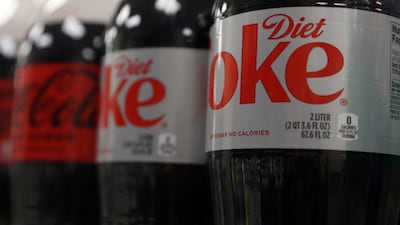Studies in Europe and the United States have found a link between aspartame and liver cancer, the World Health Organisation has revealed.
However, the WHO says that the artificial sweetener does not present a hazard if consumed within reasonable limits, and the risk to most consumers is very small.
director of the WHO’s Department of Nutrition and Food Safety,
Their assessment comes a fortnight after fears were raised amid a flurry of media reports linking aspartame to liver cancer.
“Definitely we’re not advising companies to withdraw products nor we are advising consumers to stop consuming altogether,” Dr Francesco Branca, director of the WHO’s Department of Nutrition and Food Safety, said at a media briefing.
“We’re just advising for a bit of moderation. The consumption of products containing sweeteners has increased and the use of sweeteners including aspartame has increased to try and respond to consumers' demand to reduce free sugars.”
More research required
Many uncertainties remain regarding the link between aspartame and liver cancer and WHO experts called for more research to better understand how the sweetener may create a small increased risk of liver cancer and, also, Type 2 diabetes.
Studies looking at the possible health effects of aspartame were published in Friday in scientific journals including The Lancet.
Concerns about the sweetener were raised last month when news agency Reuters reported that the WHO’s International Agency for Research on Cancer was to designate it as “possibly carcinogenic to humans”.

That designation remains, although a separate assessment, announced this week and carried out by the Joint UN Food and Agriculture Organization/WHO Expert Committee on Food Additives, known as JECFA, found that aspartame is “safe at current levels”.
Aspartame is described as the world’s most widely used artificial sweetener and has been an ingredient in popular foods, drinks and toothpastes for decades, including in household name products such as Dr Pepper, Diet Coke, and Wrigley’s Extra chewing gum.
A safe level of aspartame is about 40mg per day per kg of body weight, the WHO said, which translates to about 2,800mg for an average-sized adult.
A typical can of fizzy drink with aspartame contains 200-300mg of the sweetener. That works out at around nine to 15 cans per day, far above what most people are likely to consume.
However, the recommended maximum daily intake is likely to be much lower for a small child, as little as two to three cans per day.
Studies of large numbers of people, comparing cancer rates of those who regularly consumed products containing aspartame with those who did not found a slightly elevated risk of liver cancer, albeit not in all groups analysed. There was also, the WHO said, “limited evidence” of cancer from experiments on mice and rats.
Diabetes risk increased
The WHO analysis also indicated an increased risk of Type 2 diabetes in people who regularly consumed products containing aspartame.
Dr Branca said the WHO’s recommendation was not that other artificial sweeteners are used in place of aspartame, but that, ideally, non-sweetened drinks are consumed instead.
“Definitely companies could reconsider their products. This is the general advice – to use ingredients that do not require the addition of too much sweetener,” he said.
“We are indicating that sweeteners are probably not the way forward. It’s not about finding new products. It’s about changing the formulation of products and choice of ingredients so you can still have tasty products without the use of sweeteners.”
Dr Mary Schubauer-Berigan, acting head of the International Agency for Research on Cancer's monographs programme, said more research was needed to fully understand the apparent link between aspartame and liver cancer, and the possible mechanism by which the sweetener might have this effect.
She said aspartame had been put forward as a possible substance to investigate for carcinogenicity in 2014, but the sweetener was not selected for assessment at the time and it was not until 2019 that a full analysis of the evidence began.


